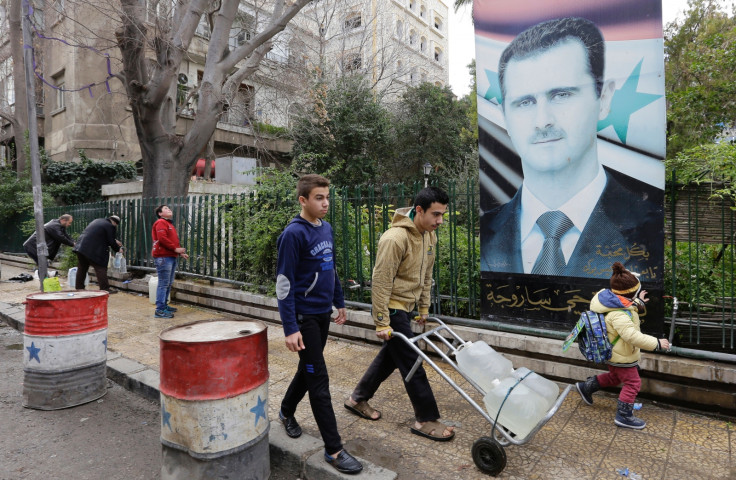Five million people in Damascus without water after supplies 'sabotaged'
UN's Syria adviser Jan Egeland warned the act was a war crime.

More than five million people in the Syrian capital of Damascus have been without clean water for two weeks, due to fighting in the north west of the city.
The Syrian government and Iranian-backed Hezbollah fighters have been engaged in an offensive to retake the Wadi Barada valley 18km (11mi) outside of Damascus, after militants rejected a deal to leave the area.
Islamist factions, including the al-Qaeda-linked Jabhat Fateh al-Sham, control a cluster of towns in the area, which provide 70% of Damascus's water supply.
Forces and media sources loyal to Syrian President Bashar al-Assad say the militants contaminated the water supply with diesel, whereas militants have said the contamination was caused by government air strikes.
Jan Egeland, the UN's humanitarian adviser for Syria, said he could not determine who was responsible at this stage, but warned that sabotaging water supplies was a war crime.
Briefing reporters on Thursday (5 January), he said: "How much [of the water contamination] was caused by fighting or by bombardment, or by sabotage by armed opposition groups? There are a lot of allegations on that. We do not really know, because we have not been able to go there.
"We want to go there, we want to investigate what happened, but first and foremost restore water. To sabotage and deny water is of course a war crime because it is civilians who drink it, and civilians who will be affected by waterborne and other diseases, if it is not restored."
As a result of the contamination, prices of bottled water and water supplied by private traders to residential homes has tripled, with a black market now thriving, according to Reuters.
Assad has diverted water supplies from other provinces to try and stem the shortfall and the UN said it is undertaking emergency efforts to provide water supplies to schools, hospitals and bakeries.
Militants in the Wadi Barada valley have previously cut the water supply to pressure Assad's Syrian Arab Army into not attacking them, but have denied doing so on this occasion.
© Copyright IBTimes 2025. All rights reserved.






















